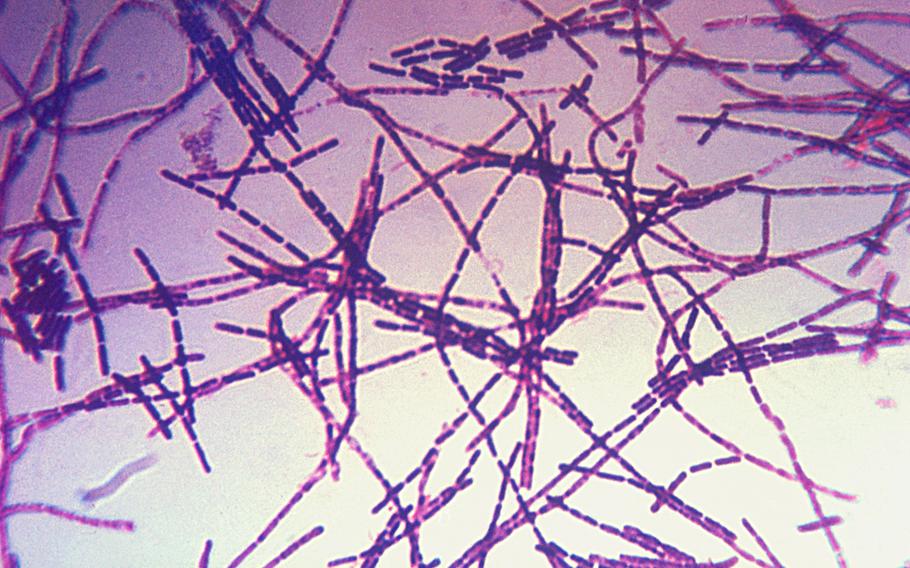
A photomicrograph of anthrax bacteria using Gram stain technique. (CDC)
SEOUL, South Korea — The U.S. and South Korea have formed a joint task force to investigate how a live anthrax sample entered the country undetected this spring, and to determine what steps are needed to prevent a reoccurrence, according to South Korea’s Ministry of Foreign Affairs.
The samples were erroneously shipped to Osan Air Base, where 22 personnel were possibly exposed to the live anthrax spores. All were examined and none showed signs of infection.
The samples, which were also shipped to labs in nine states, came from Dugway Proving Ground in Utah.
The creation of the task force shows that the two countries recognize the seriousness of the situation and the need to ensure the health and safety of the South Korean people, according to a foreign affairs ministry’s statement.
The task force — which falls under the purview of the countries’ joint Status of Forces Agreement committee and will be headed by a South Korean defense official and a high-ranking U.S. Forces Korea officer — will include defense and foreign ministry officials along with other government personnel and civilian experts in fields that include law and microbiology, the statement said.
The group will conduct an inspection at Osan later this month.
The SOFA committee will meet Wednesday to discuss the incident and review both countries’ responses, South Korea’s Yonhap News reported.
The accidental anthrax shipment, announced in May, led Osan to halt operations at its laboratory biological defense program. But a number of South Korean civic groups have called for USFK to apologize for the anthrax scare and for Seoul to restrict which hazardous materials the U.S. military is allowed to bring into the country.
Hwang Sooyoung, a coordinator for People’s Solidarity for Participatory Democracy, said the group wants USFK to punish military officials involved in the incident and to release details about how the anthrax sample entered the country. The group also wants USFK to disclose information about other biochemical tests that may be taking place at Osan.
Sooyoung criticized USFK for publicly handling the anthrax scare by issuing a handful of press releases.
“They merely said, 'This isn’t dangerous to ordinary people. We’ve thrown it away,’ while not providing details to South Korea,” she said. “But anthrax is extremely dangerous.”
The anthrax samples, expected to be inert, were part of a first-ever training program at Osan’s Joint United States Forces Korea Portal and Integrated Threat Recognition Program.
The training was meant to improve the U.S. and South Korea’s ability to protect their troops and the South Korean population “by testing currently fielded equipment and news systems that could better identify toxins and pathogens in the environment,” according to a previous U.S. military statement.
The military said in May that the training has been halted and a review of the program would be conducted.